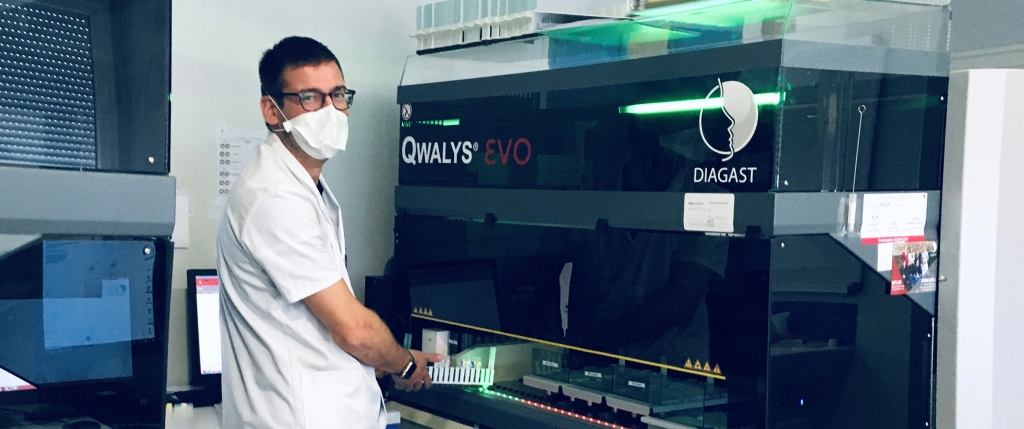Interview of Robin Lombard, DIAGAST French Field Service Engineer

« During this health crisis, we keep supporting our customers on immunohaematology by being available and listening carefully to them when needed »
Robin Lombard, DIAGAST
Could you please present your job and activity at DIAGAST (scope of intervention, geographic areas)?
My name is Robin Lombard and I am a Field Service Engineer (FSE) at DIAGAST. After a master’s degree, I did a PhD thesis in immunohematology and infectiology. Then, I worked in research laboratories and also participated, for a supplier, to a scientific project in Immunology/Cytometry. I have joined DIAGAST in October 2019 and I take care of the following regions: Normandie Centre/Val de Loire and West of Paris. I am in charge of diagnostic automated systems’ installation (preparations, demonstrations, installations, connections and trainings). I am always in contact with our customers for technical support and make the link between them and our aftersales service (remote and onsite). This job requires mobility and good inter-personal skills. The privileged relationship with our customers gives depth and meaning to my job.
What is the impact of COVID-19 on your activity?
The impact of COVID-19 was important on my daily job. First of all, during our national lockdown in March, the board of DIAGAST directors quickly ensured a business continuity plan. Nobody was left unemployed. Concerning our support activity, the management decided to prioritize interventions of the French FSEs in customers’ laboratories. We were mainly focusing on urgent interventions. At the beginning of this health crisis, we received very rapidly personal protection equipment (e.g. masks, alcoholic gels) needed for urgent technical support for business trips and it was well managed.
After the end of the lockdown on May 11th, a new period started with active recovery in the economic activity of the laboratories on all type of interventions and not only regarding COVID issues. We were on our customers’ sites every day.
How did you adapt to this COVID-19 situation?
During the lockdown period, the team of French FSEs optimized its organization and upgraded its management tools to improve communications flows. We adapted ourselves to the situation and we optimized our processes within the company with a better stock control of spare parts and systematic inventories of replacement parts. We communicated more actively with our production workshop team that produces the automated systems. The company set up remote communication tools such as Microsoft Teams, changed its mail service to maintain and optimize internal and external discussions with our customers and suppliers. We hold conferences and webinars (on our main automated system QWALYS® Evo) were implemented to exchange on these topics and train the team in optimal conditions. Case studies were also essential to provide a better understanding of each customer context and to share experiences of each FSE. All these actions were implemented to a better adaptation of our department to this new health situation.
«The covid-19 situation helped us to optimize our processes and improved communication in our company»
In what way does this situation now represent an advantage for you? What are the positive aspects of this situation?
Since September 2020, we have helped our customers on urgent Immunohaematology requests and support them in critical situation due to the health crisis. Our customers are overwhelmed with COVID-19 tests in France. We support them on Immunohaematology by being available and carefully listening to them when needed. Solidarity is essential.
Report by Karine Vivier, DIAGAST Communication department



